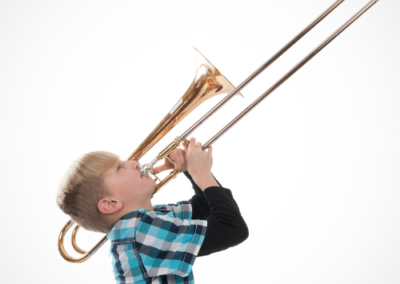Is It Hard To Learn The Flute?
A lot of students are nervous the one instrument they’ll pick to learn is too tough.
For most band instruments, this isn’t a concern, but where the flute is concerned, we need to take a look at the challenges and ease associated with it. So, is it hard to learn the flute?
The flute is a medium-difficulty instrument to learn. The flute fingerings and care of the instrument are easy to handle. Producing sound and playing the more challenging music associated with the flute, however, is a challenge for some. Fortunately, it’s easy to work around these with the right help.
As we go forward with this article, we’ll look at all elements of the flute and why you may find it difficult but rewarding.
WE OFFER YOU IN-PERSON HOME MUSIC CLASSES FOR STUDENTS OF ALL AGES & LEVELS
If you are looking for an eager, professional & reliable local music teacher to come to your home – one of us will be available, & will be able to provide you a very affordable lesson rate.
What Makes The Flute Easy
First, let’s stay on the positive side of things.
Here are some of the elements of flute playing you may find easier than other instruments.
Fingerings
Flute fingerings look complicated but are quite simple in reality.
Yes, there seem to be a lot of keys to press, but the truth is this:
Once you learn the fingering for a note on the flute, you don’t need to worry about learning a different one.
The flute also uses the same fingering structure as the soprano recorder. So if you know how to play the recorder it is easy to learn the fingerings on the flute because I had already learned to play the recorder.
Even if you haven’t played before, the fingerings are one of the easiest parts of the flute.
Caring For The Flute
All instruments need to be cared for.
This keeps them clean and working well for you.
Nothing is more frustrating than watching a student struggle and feel like a failure when it’s their instrument holding them back and not their talent or hard work.
Poor instrument care leads to a broken instrument, usually with issues around sticking keys and loose pads.
At this point, you probably are losing money too because you’ll need to send it in to get repaired at a music store.
On top of all this, you’ll make your musical instrument a breeding ground for bacteria.
While you won’t need to worry about issues like you will the sax, you don’t want to have your lips against something gross all the time.
Fortunately, cleaning the flute and taking care of it is simple.
For the most part, all you’ll need is some rubbing alcohol and maybe some finger pad paper.
Finding Resources
One of the greatest strengths of the flute is its popularity.
Unlike some other melodic instruments with little to no options out there (or poor options), the flute has a ton of great stuff to learn from if you know where to look.
Staying Motivated
One of the biggest challenges of learning an instrument is staying motivated.
With the flute, there are easier ways around this.
For one, the music in typical band groups is much more fun to play.
You do a lot more than other instruments; the flute is a melody instrument, after all.
Again, due to the flute’s popularity, there are always interesting flute things to watch, see, or try for your own playing.
The progress on the flute is pretty steady too.
Yes, there are challenges, but you’ll always be able to feel like you’re improving.
And, of course, there are always several flute players in any group you play in.
In my experience playing and teaching for many (many) years, flutists often end up being great friends.
What Makes The Flute Hard
It’s not all sunshine and roses; I put the flute in the medium-difficulty category for several reasons.
Fortunately, most of these are only big problems at the beginning of learning the instrument.
Let’s take a look.
Getting Your Mouth Shape Right
The mouth shape or flute embouchure shape for playing the flute is unlike any other wind instrument out there.
Brass instruments need to buzz their lips; it’s silly but simple.
Reed instruments such as the saxophone or clarinet need to close their lips around a mouthpiece and blow.
The flute is something different.
The exact shape of the lips depends on the shape of your mouth and the thickness of your lips.
Usually, you make a tight circle with the lower lip stuck on slightly farther than the upper.
Then, you blow a column of air across the embouchure hole aimed toward the lip plate on the head joint.
When you hit the air stream in the right spot, the air splits in half, causing a vibration which is then altered in pitch and tone by the body of the flute.
Sounds complex, right? It is.
And it’s tough to get right at the beginning.
Producing Consistent Tone
If you do manage to get over the initial mouth shape and sound production hurdle (which you will with practice), now you have to deal with consistent tone quality.
Not only do you need to practice, so you hit the right mouth shape consistently, but you also need to alter the shape as you play higher and lower notes.
Check out our detailed articles (with tips) for the lowest notes and the highest note on the flute.
This adds another layer to the difficulty of this musical instrument.
Again, it’s overcome with time and practice, but it’s tougher in the early stages.
The Music Is Usually More Challenging
The sheet music you play in ensembles such as band and orchestra is a lot more fun, but it’s also a lot more challenging.
Often, the flute plays the melody or the tune of the piece.
This may be challenging but isn’t usually too bad.
But it also plays a lot of ornamentation or highlighting of the melody or direction of the piece.
With some pieces, this is a beautiful, soaring counter-melody.
With others, it’s a grueling flurry of notes.
Physically Tiring
A lot of people also say this woodwind instrument is quite tiring.
Though the weight of the flute isn’t a lot, you have to hold it up to the side of your body, using muscles you don’t typically use.
On top of this, if you sag or droop, you’re introducing tension in your body.
Is It Hard To Learn The Flute Compared To Other Common Instruments
When it comes time to learn to play an instrument, it may be a little tricky to narrow down your options.
Everyone’s experience with an instrument will be different.
Tips For Working Around Flute Challenges
The challenges do exist on this instrument, but as with all challenges, there are ways to work around them and turn them to your advantage.
I’m no master flutist, so I asked around to my friends who are to develop this list of tips to help you with the early stages (and later stages of learning the flute):
- Always take the time to check your posture
- Stop when you get too tired
- Don’t be afraid to roll the flute up every time you start playing for a while
- Put a weight on the end of your flute to build muscle; then take it away
- Go slow and give yourself grace; even the pros had to put in years of practice
- Motivate yourself by watching and listening to great flute players
- Practice often, but for shorter sessions
- Find a teacher you like but who pushes you
- Connect with other flutists to stay motivated and share tips
- When a part is tough, slow it down and repeat, repeat, repeat
How Long Will It Take To Learn The Flute?
As with any instrument or complex skill, the prevailing knowledge is that it takes 4,000 hours to master any skill.
If you practice a half-hour per day, every day, it will take you 22 years to master the flute!
But this is only if you want to be a master of your instrument.
If you want to develop a decent level of proficiency, you only need to get around 500 hours of practice – this is closer to 3 years. (Remember, this assumes the only playing you do is a half-hour of practice every day.)
If you practice more often or join ensembles where you play more, the number gets down much faster.
FAQ
What’s a good beginner flute? – There are many good options for beginner flutes, and the best ones balance price, reliability, durability, and great sound.
Can I learn flute online? – With Music Lessons Australia we offer online courses which are particularly useful for when there are covid lockdowns affecting our ability to conduct face-to-face lessons. These lessons online are at a discounted rate.
How much does a decent flute cost? – A decent flute needs to at least be in tune and work reliably. You won’t find many beginners or intermediate options fitting the bill for less than $500. On average, I’d expect you to spend between $600-1000 for a decent flute at most levels.
Be careful about spending less as the instrument may not work well at all and hold you back from learning this fun woodwind instrument. Expensive flutes may be scary, but they sound great and play nicer than a student model flute.
Do flutes need to be tuned? – Standard flutes need to be tuned every time you play it, but it’s a personal thing, so you can’t just pay someone to do it.
How much do flute private lessons cost? – Our lesson prices at MLA are the same across all instruments. Enquire our customer support team for lesson prices.
Considering learning to play the flute? Music Lessons Australia provides flute lessons to students of all ages all across Australia. We teach you all the different techniques needed to learn the flute.

PRIVATE home MUSIC lessons in Sydney, Melbourne Brisbane, Adelaide, & Perth for students of all ages & levels
If you are looking for an eager, professional & reliable music teachers to come to your home – we are available, & will be able to provide you a very reasonable music tutoring rate.
ENTHUSIASTIC STUDENTS
PROFESSIONAL TEACHERS
INSTRUMENT DISCIPLINES
What People Are Saying
My daughter’s teacher, John is superb and very talented. He is super patient with my daughter and he cares. You won’t regret taking lessons. I assure you =)


CALL BACK FORM
one of the friendly team organisers will contact you soon













